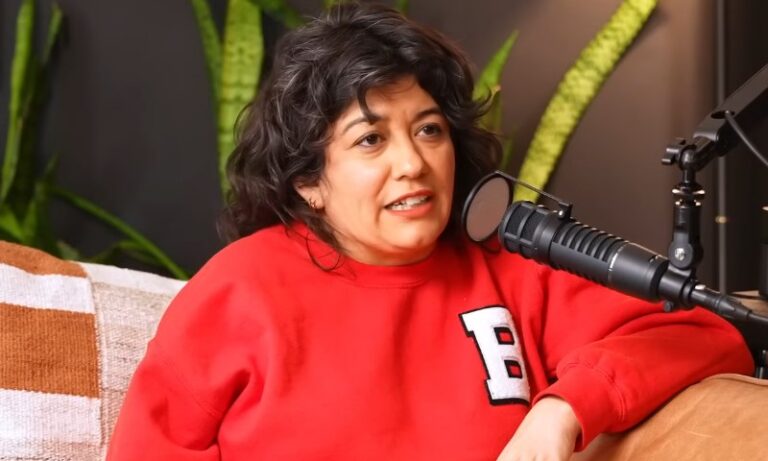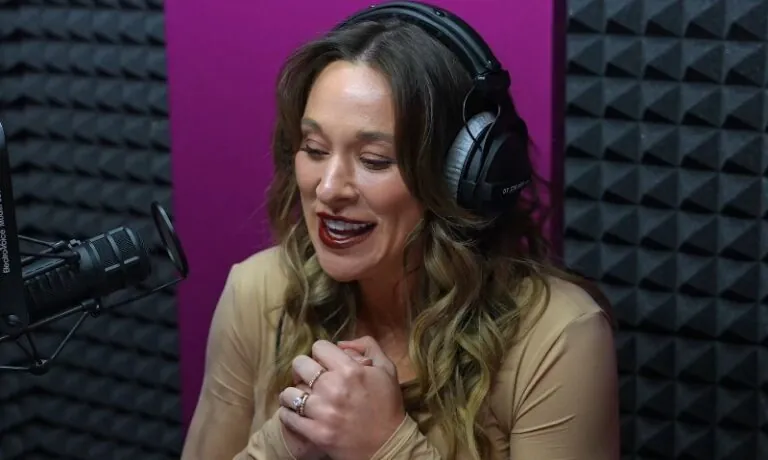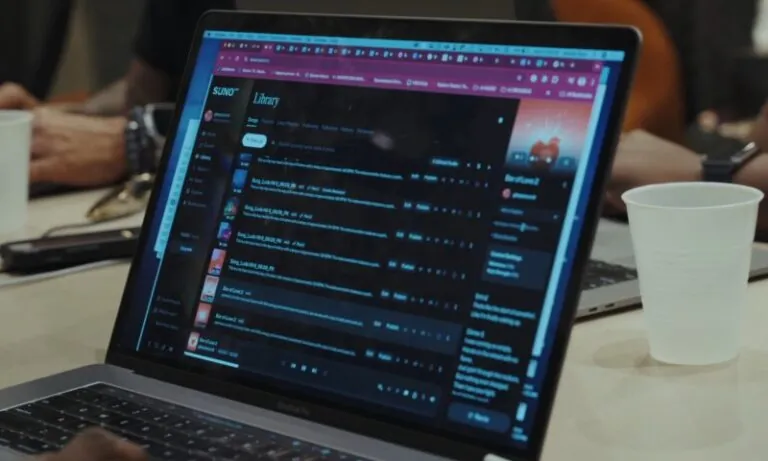Dateline NBC pulled me in on a quiet night with nothing planned. I clicked one episode, expecting background noise. Instead, I sat frozen through every word. The rhythm, the voice, the layers inside each case. Something about it all demanded full attention. I kept going long past midnight.
A few days later, I found a story about Bonnie Contreras on Hurfpost Brazil. Her experience felt completely different but just as powerful. One story led to another. I kept reading. That search brought up names like Daniel Villegas, Kerry Max Cook, and Wes Watson.
Their situations had no link to hers, but every single one carried weight. I started seeing a pattern. Some stories live quietly until someone gives them space. Dateline NBC became that space. That is what pushed me to write this piece.
What Makes Dateline NBC Podcast Stand Out
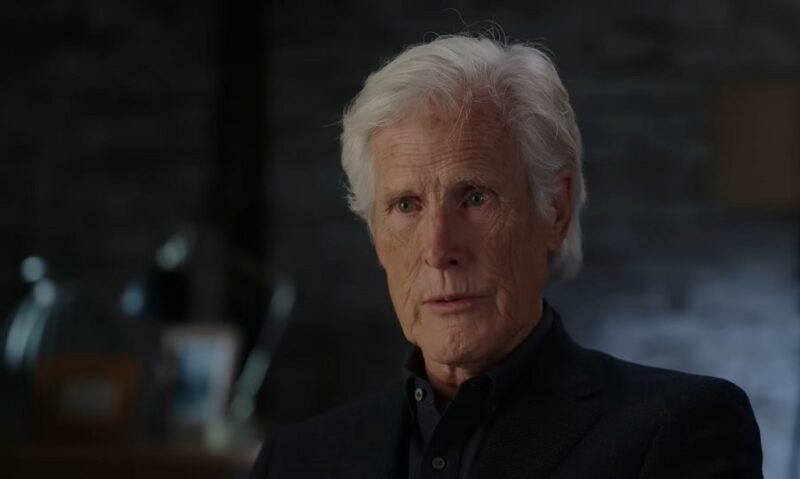
| Format | True crime journalism in podcast form |
| Episode Length | Usually between 40 and 90 minutes |
| Narrators | Keith Morrison, Andrea Canning, Josh Mankiewicz, Dennis Murphy |
| Story Source | Real criminal cases first reported on Dateline NBC TV |
| Popular Series | The Thing About Pam, The Seduction, Murder in the Hollywood Hills |
| Where to Listen | Apple Podcasts, Spotify, Google Podcasts, Amazon Music, NBC.com |
| Language | English |
| New Episodes | Released every week |
| Premium Option | Dateline Premium with ad-free access and early release |
Each episode brings the full weight of the case. Listeners follow every part of the event. Families, officers, prosecutors, neighbors, and witnesses all speak in their own words. The pace moves with patience. The story stays grounded in fact.
Everything comes from the source. Court audio, police interviews, and direct testimony shape the story. The result feels real and complete.
The listener stays with it because every detail holds purpose. There are no shortcuts or summaries.
Trusted Voices That Let the Story Speak
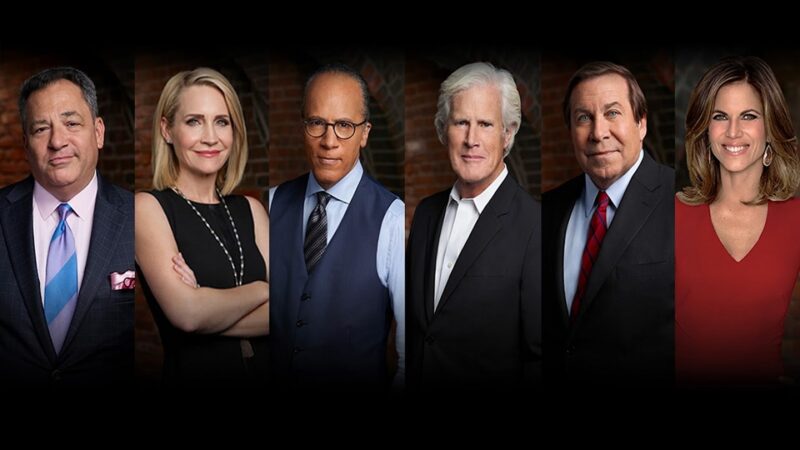
Keith Morrison guides with calm restraint. Andrea Canning brings balance between detail and tone. Josh Mankiewicz adds focus without stepping into the foreground. Dennis Murphy follows the story with clear pacing and structure.
Each reporter has seen these stories before. They know what questions matter. Their experience shows in how they handle every pause, quote, and transition. Listeners are never pulled away from the core of the case.
A Format That Never Loses Control
The structure always stays steady. Stories begin with the first moment something changed. Investigators and families respond. Each episode then walks through the timeline.
Listeners hear how every clue added pressure, doubt, or progress. The conclusion offers outcome, closure, or more questions.
There are no distractions. The format holds firm. Every part connects to what came before. The listener always knows what is happening and why it matters.
Cases That Stay in Your Mind Long After the Episode Ends
Every Dateline NBC episode covers more than a crime. Behind each one stands a life cut short, a question left open, or a mistake that changed everything. These stories do not follow a single formula.
Some begin with grief. Others open with confusion. All of them move with care. What stays with the listener is not shock. What stays is the truth told by the people who lived it.
The Thing About Pam
The story begins with the death of Betsy Faria. Police arrested her husband. Early reports made the case seem settled. Then new evidence came forward. Pam Hupp became part of the story. Her role shifted everything.
She gave statements that created more questions than answers. The case turned into a larger story about false leads and missed warnings.
The strength of this episode comes from its detail. Every voice adds depth. The timeline never loses order. The result is steady and clear.
The Seduction
A woman died under circumstances that raised suspicion. Her partner became the focus of the case. Friends and family spoke with pain, but also with conviction. The case grew through witness memory, digital records, and contradictions in testimony.
Each moment in this episode feels grounded. Listeners hear the emotional side without losing the facts. That balance keeps the story close and controlled.
The Officer’s Wife
A police officer was found dead in her own home. The scene raised doubts. Her husband had made the emergency call. The investigation moved in stages. Each new piece of information shifted how the case looked.
Friends of the victim added important context. Her past experiences and personal life entered the record.
This story builds carefully. No detail feels rushed. Every part holds its place in the timeline.
Death in the Hollywood Hills
A man with strong social ties was found murdered. His public life created pressure on the investigation. Friends, former partners, and colleagues spoke to reporters. Many of their comments added confusion. The motive stayed unclear.
The episode does not try to explain away uncertainty. It shows how real cases unfold with gaps. That choice gives the episode a serious tone without artificial drama.
The Target
The victim had no link to the attacker. The crime felt sudden. Law enforcement followed traces of planning. They looked at security footage, digital records, and witness reports. The case revealed a plan that had taken shape quietly.
What gives this episode weight is the way the timeline stays visible. Listeners hear how each decision led toward a final event. The episode ends with clarity, not performance.
What Makes Dateline NBC Different from Other True Crime Podcasts
Plenty of podcasts cover crime. Most take a fast, casual approach. A few lean into entertainment. Dateline NBC does something else. The focus stays locked on the story, not the host. The voices speak from experience, not rehearsal. There is no guessing. Every fact comes from real investigation.
Each reporter brings years of background in journalism. Their work is built on interviews, court records, and direct reporting. Some covered these cases in real time.
Others revisited them with access to police files and testimony. They speak as professionals who have seen what crime looks like up close.
Nothing in the production distracts from the facts. The sound design avoids dramatic buildup. Narration stays calm and clear. Every moment serves the timeline. Listeners follow each step with clarity and without interruption.
Dateline NBC works because it avoids distraction. The cases speak for themselves. The facts hold attention. The people involved do not get reduced to one moment. They are heard in full.
Why Dateline NBC Deserves Your Time and Attention
Most podcasts try to grab attention in the first minute. Dateline NBC does not. It opens without tricks. No one speaks louder than they need to. No one adds color to facts. That control holds through every second.
The reporters do not speak to perform. They speak to document. Keith Morrison does not raise his voice. He lowers it when the story demands silence.
Andrea Canning keeps her tone steady, even when the testimony shakes. Josh Mankiewicz moves forward through the facts without breaking focus. Dennis Murphy listens before he explains.
The voices you hear belong to people who were there. The detectives explain how they made choices. The parents explain what they remember. The audio does not fade in and out for effect. If a pause lasts too long, it stays in. That choice respects the truth more than the listener’s patience.
The strongest stories do not end with a twist. They end with someone still asking questions. A verdict does not always settle the weight of the loss. Dateline NBC does not fix that. It puts the pain where it belongs, and then it stops.
Final Thoughts
Dateline NBC stays grounded in facts, not performance. Each story moves through timelines built from police records, witness accounts, courtroom exchanges, and personal memory.
The focus remains on the truth of what happened, told by people who experienced it or worked to understand it.
Listeners follow the structure without confusion. Reporters speak with control shaped by real fieldwork. The cases develop without sudden shifts or emotional manipulation. No part feels forced. Every voice, every moment, every turn in the story fits where it belongs.
Read Next – Steve Sommers Overnight Drive Review
Related Posts:
- The Steve Sommers Overnight Drive Review: Late-Night…
- Top Premier League Podcasts You Can't Miss - Expert…
- How I Built This With Guy Raz Review: Best Episodes,…
- Morbid Podcast - Balancing Humor and Horror in True Crime
- Clickbait Celeb Headlines - How to Identify What’s…
- Best True Crime Podcasts - Our Top 10 Picks for 2025






